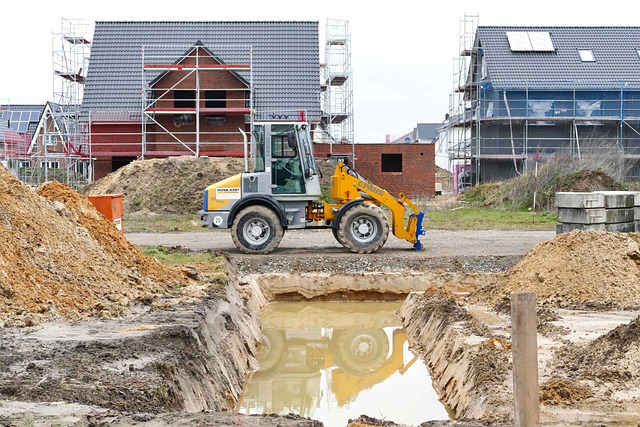So, you’ve (hopefully) just finished a shiny new building project. Maybe it’s a home extension, a revamped office space, or a brand-new shop floor. But before you clink champagne glasses and celebrate, there’s a chance unwelcome surprises might be lurking beneath the surface. These surprises are called latent defects, and they can be a real headache for property owners.
If you’re unfamiliar with the term and suspect you might be dealing with one, don’t panic. Blackstone Solicitors is here to shed light on latent defects, explain your rights, and help you navigate this tricky situation.
Free Initial Telephone Discussion
For a free initial discussion with a member of our New Enquiries Team, get in touch with us today. We are experienced in dealing with all the legal aspects of latent defects, and once instructed, we will review your situation and discuss the options open to you in a clear and approachable manner. Early expert legal assistance can help ensure you are on the best possible footing from the start and also avoid the stress of dealing with these issues on your own. Simply call us on 0345 901 0445 or click here to make a free enquiry and a member of the team will get back to you.
The Culprit: What Exactly is a Latent Defect?
Imagine a hidden villain in your construction project, a flaw that wasn’t apparent during the initial inspection but decides to show its ugly head much later. That’s essentially a latent defect. It’s a fault in the building structure, materials, or workmanship that was not discoverable through a reasonable inspection at the time of completion.
Here’s the key difference between a latent defect and a “patent defect”:
- Patent Defect: These are the easy-to-spot blemishes you might notice during the handover, like chipped paintwork or a wobbly door handle. These should be addressed by the contractor as part of the snagging list.
- Latent Defect: These are the sneaky ones. They hide behind walls, under floors, or within the building’s structure, waiting for the opportune moment to cause trouble. Leaky roofs that develop years later, cracks in foundations, or faulty electrical wiring – these are all potential examples of latent defects.
Why are Latent Defects a Problem?
Latent defects can be a major source of stress and financial burden for property owners. Here’s why:
- Unexpected Costs: Fixing these hidden faults can be expensive, especially if they require major structural repairs. The cost often falls on the property owner, as the defect wasn’t identified during the initial inspection.
- Safety Concerns: Some latent defects can pose serious safety risks, like structural issues or faulty electrical wiring. These need to be addressed promptly to avoid potential accidents.
- Legal Battles: Depending on the severity of the defect and the terms of your construction contract, you might find yourself in a legal dispute with the contractor to determine who’s responsible for the repairs.
Feeling Trapped? Blackstone Solicitors Can Help!
Latent defects can be a daunting issue, but you don’t have to face it alone. Here’s how Blackstone Solicitors can be your champion:
- Contract Review: Our legal experts will meticulously review your construction contract to understand the warranty terms, defect liability period, and any potential clauses related to latent defects.
- Expert Advice: We’ll provide clear and concise legal advice on your specific situation, helping you determine the best course of action.
- Negotiation Expertise: If the contractor is responsible for the defect, our experienced solicitors will negotiate on your behalf to ensure they rectify the issue.
- Court Representation (if needed): In the unfortunate event that negotiations fail, Blackstone Solicitors will provide expert legal representation if court action becomes necessary.
Minimizing the Risk of Latent Defects: What You Can Do
While there’s no guaranteed way to eliminate the risk of latent defects entirely, there are steps you can take to minimize it:
- Choose a Reputable Contractor: Opt for a contractor with a proven track record and positive customer reviews.
- Get a Detailed Contract: Ensure your construction contract clearly outlines the materials, workmanship standards, and the defect liability period.
- Hire a Surveyor: Consider hiring a qualified surveyor to conduct a pre-completion inspection. While they might not uncover all potential latent defects, they can identify any glaring issues before you accept the project as complete.
- Keep Records: Maintain meticulous records of all communication with the contractor, including emails, invoices, and any variation orders made throughout the project.
The Bottom Line: Knowledge is Power
Latent defects are a potential pitfall in any construction project. However, by understanding what they are, taking preventative measures, and seeking legal guidance from Blackstone Solicitors if necessary, you can significantly improve your chances of avoiding costly repairs and disputes down the line.
How we can help
We have a proven track record of helping clients deal with latent defects. We will guide you diligently and ensure all checks are carried out swiftly and efficiently and we firmly believe that with the right solicitors by your side, the entire process will seem more manageable and far less daunting. You can read more about the range of construction law services we offer by clicking here: https://blackstonesolicitorsltd.co.uk/construction-solicitors/
How to Contact Our Construction Solicitors
It is important for you to be well informed about the issues and possible implications of latent defects. However, expert legal support is crucial in terms of ensuring a positive outcome to your case.
To speak to our Corporate solicitors today, simply call us on 0345 901 0445, or click here to make a free enquiry. We are well known across the country and can assist wherever you are based. We also have offices based in Cheshire and London.
Disclaimer: This article provides general information only and does not constitute legal advice on any individual circumstances.



